My 'Controversial Opinions' on the Primary Male Pop Culture Idols of the 20th Century
Many of my adolescent "fanboy" obsessions have largely died as I near 40, for reasons both fair and unfair...
I’ve been meaning to jump into the pop culture debate over various science fiction franchises, superheroes, and the James Bond series.
, , and have all offered some fun takes in their pieces.I, on the other hand, am basically the BuzzKillington at the party, as I must confess: as so much of my life has transformed over the last year, so too have my feelings and opinions on the various pop culture properties that have informed the upbringing of the American male over the last 60 years or so. As my overall worldview has grown much darker, and my view of human nature more cynical, so, too, is my stance on much of the pop culture that was once so important to me.
Sorry, friends! While I can still appreciate aspects of “fan culture” from afar and enjoy the pseudo-intellectual discussions picking apart the fictional universes, on a personal level, my heart is broken when it comes to most male fandoms. My enthusiasm has died and now I must move on. Here’s why. You may perhaps pick up on a recurring theme.
Star Trek
My Star Trek fandom began in about sixth or seventh grade, inspired by two friends who were “hardcore Trekkies” - the types of geeky guys who owned humongous collections of Star Trek toys, replica props, and Star Fleet costumes. I tried to follow their lead a bit for years. I became fairly well-versed in the Star Trek universe, at a time when, in many ways, it was at its peak: in the second half of the 1990s, there were two new Trek shows on TV (Deep Space Nine and Voyager), and the Next Generation movies were riding high with 1996’s “First Contact.”
While I very much enjoyed Star Trek as a teenager, I consistently fell on the Star Wars side of the debate over which franchise was better. I suppose I was mostly influenced by my earlier exposure to Star Wars as a child. I think part of what didn’t sit so well with me about Star Trek - and what still doesn’t - is the rather conformist nature of Star Fleet and the Federation. These are shows essentially about interplanetary militaries. Thus Deep Space Nine, with its heavy cast of outsiders, rogues, and non-Star Fleet personnel, became my Star Trek show of choice. It remains so to this day. I still maintain a deep and genuine love for Deep Space Nine - it’s one of the greatest TV shows of all time. (
and I especially bond over this point.)But for now at least I can no longer watch it - nor really dig all that deeply anymore into the Star Trek world, for a simple and very personal reason. I ended up marrying a Trekkie far more devoted than even my junior high buddies. (Editor's Note: Not me!! SS) And I was the one who introduced her to Deep Space Nine, faithfully watching all of it on used DVDs I’d discovered at the local used video game shop, on a tiny little DVD player during our first years of marriage. And then in the age of streaming, years later, we’d watch it all again multiple times, until it became the standard “falling asleep” background sound. For years, I was entrusted with selecting episodes I knew my wife loved and skipping ones she hated for when it came time for her to fall asleep each night. So now there are a number of episodes I’ve seen perhaps a dozen times, and so much of the Deep Space Nine mythos I know too well.
My divorce from my first wife should go through in the next few months or by early next year, and with it, too, is a kind of divorce from Star Trek too. The new Star Trek shows - Discovery, Lower Decks, and Picard - I’ve found all right (though not great) from what I’ve seen of them, particularly Discovery as it gets through the usual initially rough first seasons of any Trek show.
But I think what Star Trek as a franchise accomplished is largely done now. There’s nowhere else to really go — further movies and TV shows are largely just retreads and derivatives of what has already been done, and more and more simply “fan service” to satiate the existing base of hardcore fans. I think
was right in his final opinion on his Star Trek installment, though of course one can debate the date:agreed. And the fact that as devoted a fan as he has only seen fragments of the new shows on offer now is telling testimony:Star Trek died as a franchise in 2009, and its corpse has been decomposing ever since.
Yep! Though, I will say I enjoyed the first and third Jar Jar Abrams movies. I’ve watched season one of Disco, season one of Strange New Worlds, season three of Picard, and none of Star Trek The Rick and Morty Generation (Lower Decks).
Star Wars
My personal foundations with Star Wars go much deeper than Star Trek. Whereas my appreciation for Gene Roddenberry’s world began at 11 or 12, I was a George Lucas loyalist by 2. My parents discovered that watching “Star Wars with Yoda” as I called it - the sequence where Luke and Yoda meet for the first time in “The Empire Strikes Back” - was effective at putting me to sleep each night.
As a child, my father and I scoured the San Francisco Bay Area’s flea markets, collecting all the original Star Wars action figures and many of the vehicles and play sets, all which became staples of childhood play and imagination. For whatever reason, I was one of those boys who drifted toward Boba Fett as my favorite character - which he remained until Lucas largely ruined him in “Attack of the Clones.”
Upon arriving in Indiana, the boy who I would come to regard as my best friend, who would become the best man at my wedding, bonded with me over our shared Star Wars appreciation. We played with the action figures together, the video games, the Star Wars-branded Monopoly.
I used to think we’d be friends forever - but now we don’t talk anymore. We didn’t see each other when
and I visited Indiana last winter. I’m not sure I really ever want to see him again, as he was one of the friends I really needed and expected to be there for me in fall of 2021 when I experienced the violence which caused my PTSD. But he wasn’t there for me - a friend I’d known and cherished since 1995 - who I’d grown up with. His absence hurt me greatly. Instead, the four people I’ve tagged in this piece who I’ve hardly known as long or as deeply ended up being much more supportive - as I found many people who I’d never have expected to be there for me.So just as Star Trek is now inexorably bound with my soon-to-be ex-wife, Star Wars is encased in carbonite with my lost best friend.
Now, my own traumas aside, from a critical perspective I’ll also say this: Star Wars since the release of the “special editions” in the late ‘90s has just been one almost continuous decline, with the exception being the success of “The Mandalorian.” The prequel trilogy was a huge disappointment and the sequel trilogy was even worse - I didn’t even bother seeing the second and third sequel trilogy films after being so unimpressed with the first.
So, I’m sorry - I suppose, as with Star Trek, I just don’t see much new territory for Star Wars to tread. Creating the first Star Wars TV show with “The Mandalorian” was an achievement and significant, but it doesn’t seem to me that more shows expanding on it is really all that compelling. Nowadays
and I mostly use Disney+ for the canon of classic Disney and Pixar films or if we’re in the mood for a nature documentary. And the absurdly huge “Simpsons” archive.James Bond
So what the hell is the emotional baggage I have with 007 that makes me a huge baby, unable to continue to appreciate the seminal action series?
It’s really much the same situation as Star Wars. For my “Xennial” generation of early ‘80s-born males, the big imprint James Bond made was his starring role in the Nintendo 64’s “Goldeneye” game, which became a pillar title of late ‘90s video-gaming.
Just as my once-best friend and I bonded over shared Star Wars fandom, so too with endless Goldeneye battles for years. So now, to recall the fun of the James Bond fantasy is, likewise, to recall my lost friend - never mind the lost innocence of the escape that pretending to be the world’s greatest spy provided for so many years.
And just as we’ve seen diminished returns over the last 20 years from Star Trek and Star Wars, I’d wager the James Bond franchise has gone the same way. I say I’d “wager” because the only Daniel Craig Bond film I saw was the first. I didn’t care for the more “realistic” direction the series took - nor did I particularly enjoy Craig as Bond.
For the record, though, I’ll lay out these various Bond opinions, some which may be “controversial”:
I cannot really say who is the best Bond since I haven’t seen the ones with George Lazenby and Timothy Dalton. And I really should give more of Daniel Craig’s movies a shot. I suppose Connery is the obvious choice, which I won’t disagree with, though I will say that I don’t really care for Roger Moore’s Bond, though Pierce Brosnan’s was always sufficient, if not extraordinary.
For both Moore and Brosnan - their first films in the series - “Live and Let Die” and “Goldeneye” - were definitely their best.
Of the Connery Bond films, I lean more toward “Goldfinger” than Alec’s choice of “From Russia With Love,” but I’d really have to revisit both to decide for sure.
All in all, I don’t really have a favorite Bond movie, nor would there be any that I’d rate as an “A” film. They’re all somewhere in the B+ to C- range from what I’ve seen. Even one of the weaker ones is still entertaining, while the best can only make so deep an impression.
I don’t think Bond really works that well outside of a Cold War context.
Finally, as I said with Star Trek and Star Wars, I’m not sure there’s really anywhere more for James Bond to go. What the Bond series helped pioneer - the modern action film - is now a largely dormant genre in the age when CGI special effects have become so prevalent that the thrills of action films at their peak in the 1990s just don’t exist anymore. We know now that whatever we see that looks like it might be thrilling or dangerous was probably just cooked up by a computer.
Comic Book Superheroes
I have “saved the best for last,” because my views toward the largely overlapping worlds of comic books and superheroes have not suffered the same personal-trauma-tainted fate as the three previous realms. Visions of Gambit hurling glowing, explosive playing cards or Christian Bale’s Batman throttling Heath Ledger’s Joker do not recall any painful memories of loved ones lost.
However, I concede that my perspectives today on all this are overly eccentric and cynical, primarily shaped by the medium’s most extraordinary creative genius:
Yes, when it comes to all things comics and superheroes, I’m an Alan Moore disciple. I regard the creator of Watchmen, From Hell, V for Vendetta and a host of other innovative titles as the medium’s James Joyce. I tend to sympathize with not just his great quality as an artist, but also his general disillusionment with comics and superheroes. I suppose here too I should start from the beginning to lay out my bona fides and biases.
For me, the superhero world began as the Star Trek world did - with the encouragement from friends more deeply invested than I ever would be. It was probably 2nd or 3rd grade, in the early 1990s, when not comics as a whole, but one particular comic broke through and made a huge impression on me and my friend group: X-Men.
But we never really got that into the comics. For us, collecting the cards, watching the Saturday morning cartoons, playing with the action figures, and then delighting in the video games was more than enough.
Gradually, my superhero interests expanded beyond the X-Men to the whole Marvel universe, and then over to exploring what DC was all about. However, I was always more interested in the characters, the details of their powers, and the broader interconnected fantasy universe than I was in the comics and the stories themselves.
X-Men, as my first and most intense superhero imprint, likewise also probably shaped my interests and preferences in the genre as a whole. The X-Men were weird outsiders who did not fit in with the world around them, but they still fought to save and protect it. I could relate to them, and then later came to understand how the civil rights movement had inspired the original comics’ themes.
In contrast, Batman and Superman were less relatable. Both are simply so ultra-powerful, ultra-competent, godlike beings (despite the dogged insistence that Batman is just an ordinary human). And that just didn’t interest me much! I came to see that Superman and Batman - and their later expansion with the Justice League - could, apparently, do anything. (This is not to say that I didn’t very much enjoy the Batman films and cartoons, or the Superman and Justice League series that followed - great entertainments.)
So while I felt a strong appreciation for the superhero world during my adolescence, my interests ultimately drifted in other directions during junior high and the first years of high school. I didn’t return to the comics world until I was a little bit more mature, during my early high school years in the late ‘90s, when the “graphic novel” was suddenly in vogue. Comic books collected into a trade paperback could now be regarded as books and literature - they could be taken seriously.
Fueling this trend was the recent launch of DC’s “Vertigo” line, specifically aiming at more mature readers. This imprint would publish two seminal series from authors I continue to admire - Neil Gaiman’s The Sandman and Grant Morrison’s The Invisibles.
However, among the various comic writers touted as great literary artists, one stood above all: Alan Moore. And the hype around him is entirely deserved.
If Joyce's Ulysses was the greatest novel of the 20th century - really, the final, ultimate expression of what the medium could offer - Watchmen was the superhero comic book equivalent. (And what of Moore’s work over the last 30 years? He’s now in the Finnegans Wake period of his writing career, putting out work of such depth, complexity, and originality that it borders on downright difficult at times. But that’s all right! I have so much of Moore’s titles and his new novel and short story collection to get caught up on.)
So now, just as I’ve lost faith that Star Wars, Star Trek, and James Bond really have any new territory to break, I've also come to doubt that, after Watchmen, there is really anything new to do with superheroes. It was the final and ultimate deconstruction of the superhero archetypes, demonstrating where they lead when taken to their ultimate conclusions.
Seeing the interconnected comic book characters of the Marvel and DC universes adapted into film was exciting during the ‘00s and early ‘10s - but at this point it, too, has grown predictable, cliché, and bloated. What else is there to do or say with the superhero? What comic book creators today are innovating with greater depth and creativity to build on Moore’s accomplishments? I’m not sure one really can anymore.
But now I’m blogging myself into a corner - here I am, a publisher/writer/editor of novels, dumping on so many of the very genres which I plan to participate in myself.
In spite of my “broken heart” on what has become of so many pillars of the science fiction, fantasy, and adventure genres, I’m still excited to jump into trying to create new stories and new characters in these spaces.
Star Trek, Star Wars, James Bond, Marvel and DC comics - this is what we grew up on in the 20th century, but what now can we create that’s new for the 21st century? And who out there in Substack outer space wants to jump in and join us?


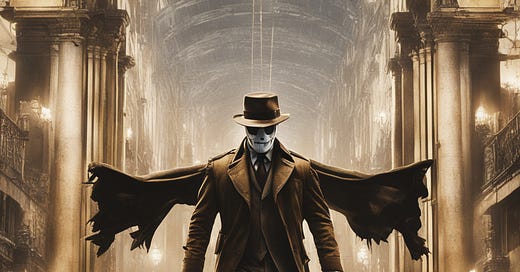


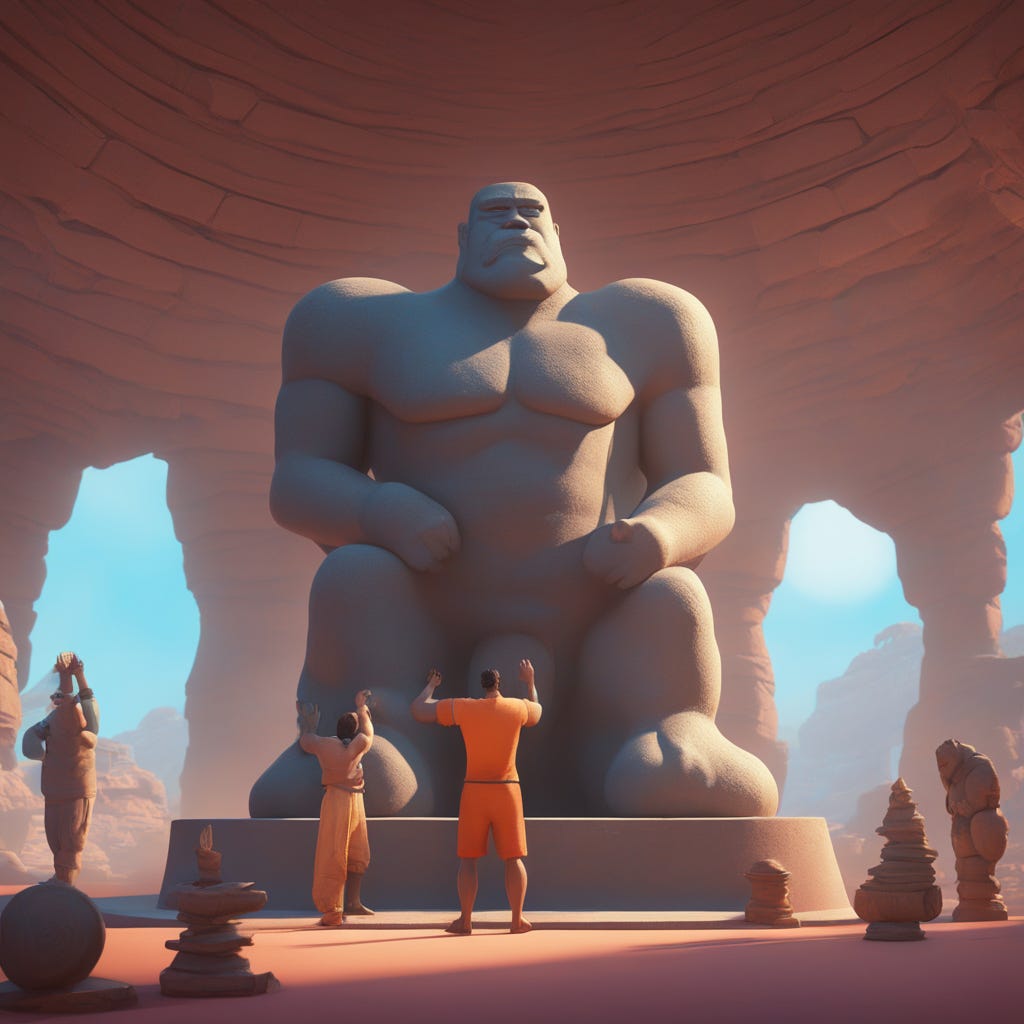
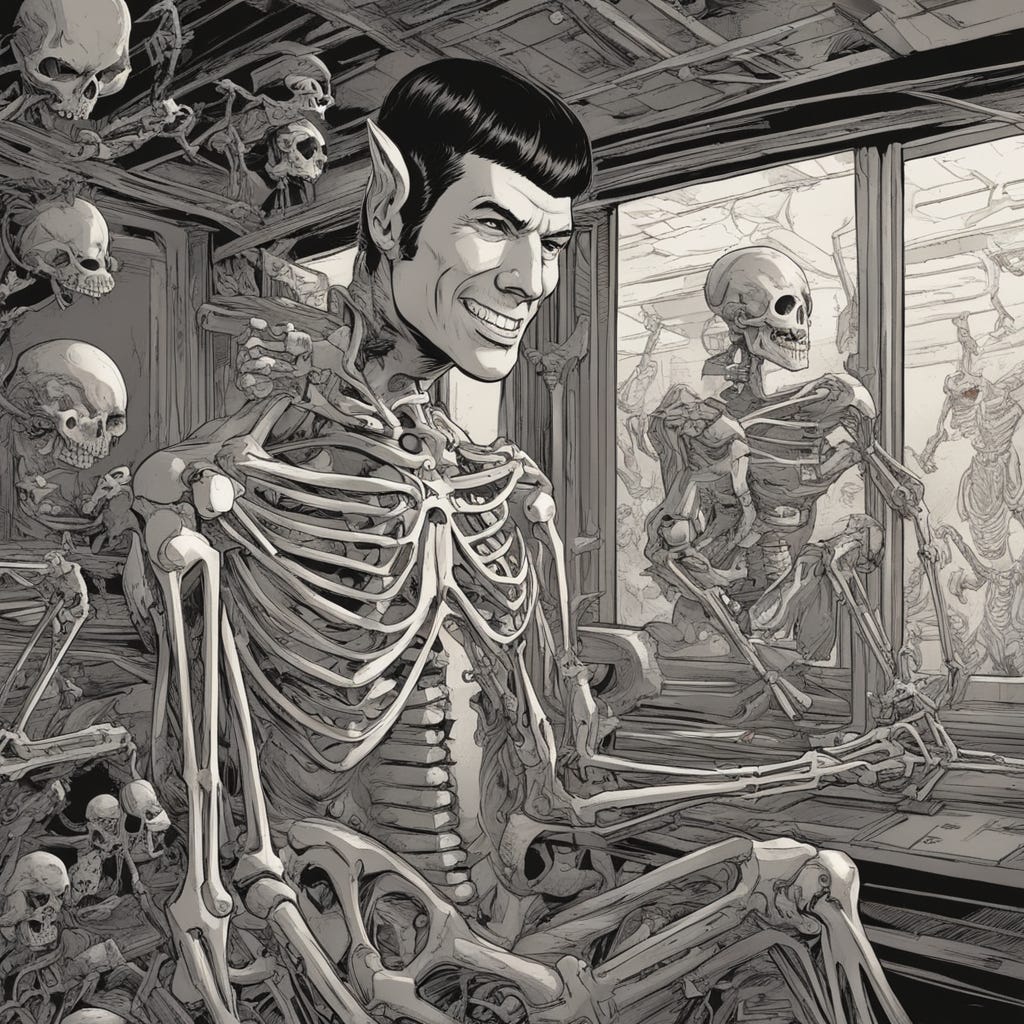
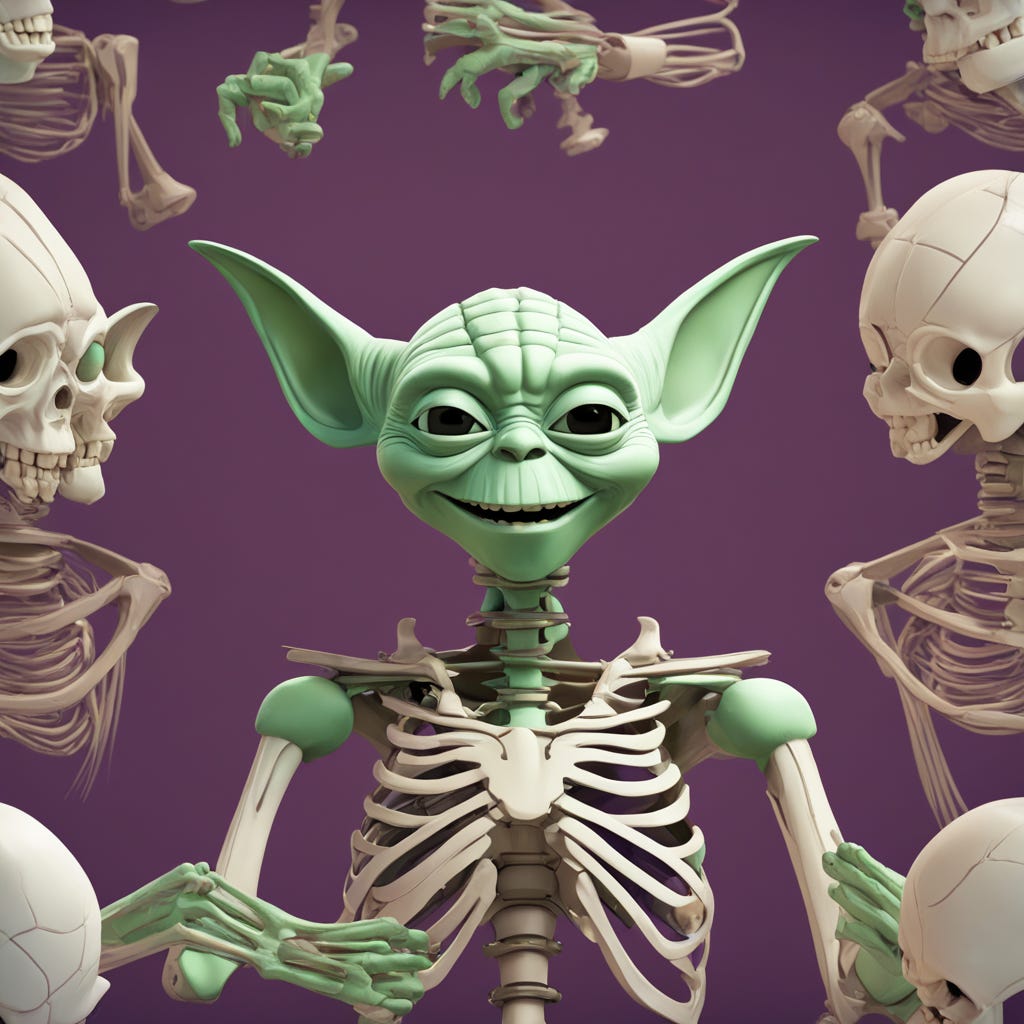


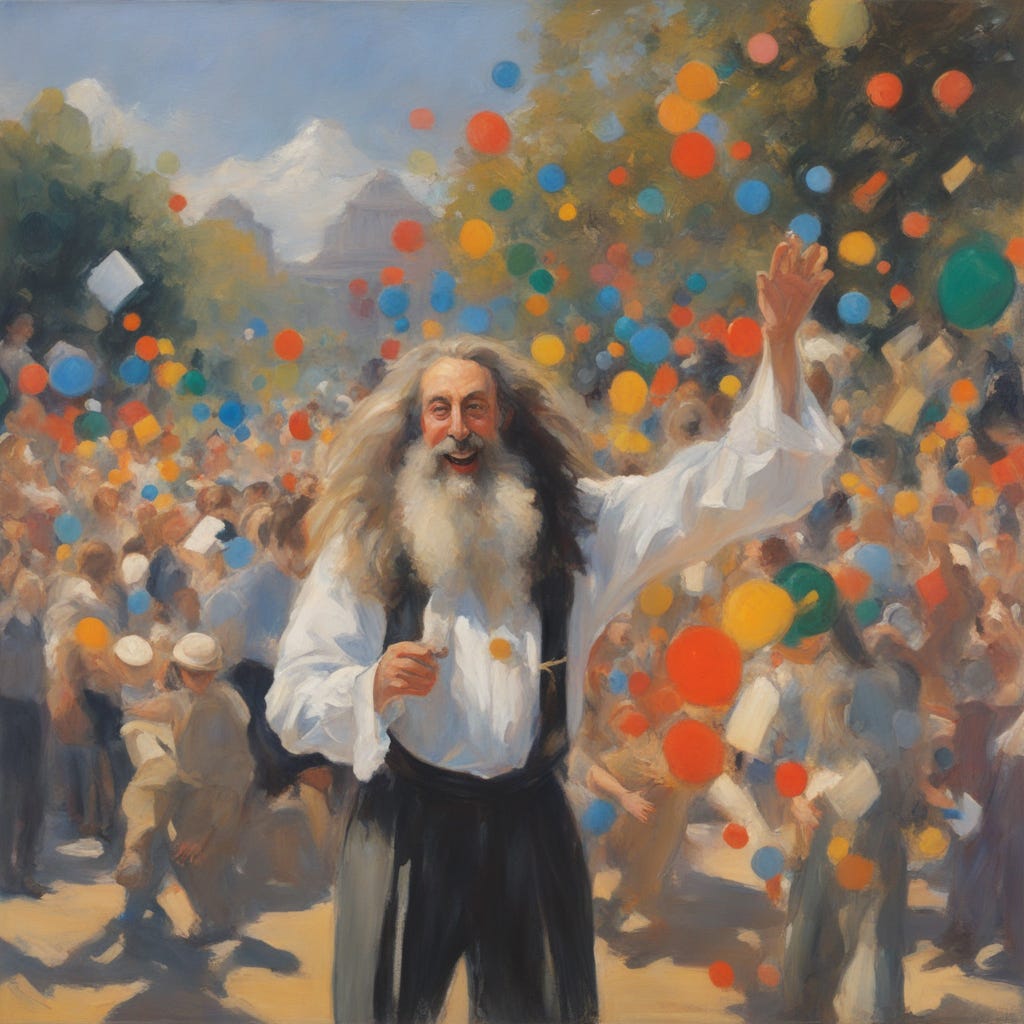
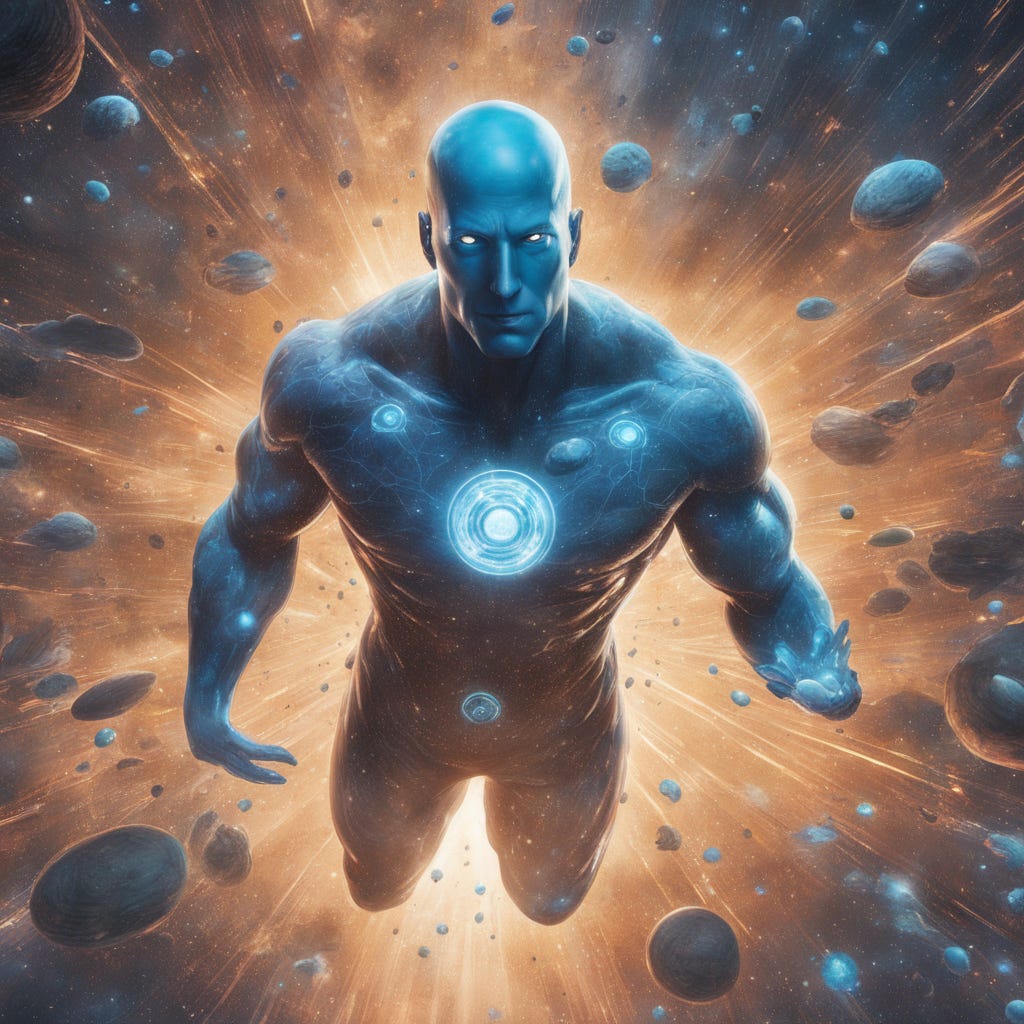
Unexpectedly depressing.
I share your opinion on Alan Moore to a degree, but I would argue comics have more to offer. I've been been getting into them more recently as its easier to read them while I watch my 1.5 year old daughter than read some dense novel.
To me part of the Watchmen is kind of about a certain loss of innocence. Superheroes are the perfect metaphor for that because superheroes are a childhood and adolescent thing for most people. Especially when the Watchmen came out.
The backdrop is also the battle between supposed good and evil that was the cold war ending. America sitting as a hegemonic power. Yet despite this end struggle doesn't end, the old resentments are pushing the world towards nuclear annihilation and the US is in cultural and moral decline. There are no heroes there to save anyone. There never really were.
Moore was like every comic artist and writer a massive fan of comics and superheroes growing up. However he realized that the genre had gotten stale and formulaic, he also questioned the morality of such powerful vigilantes and how the entire genre effected people like himself.
So in a way the Watchmen is a sad reflection about growing up and becoming more cynical and critical. So obviously it can resonate with people like yourself and myself who may have kind of become sour on a lot of popular culture grew up with for many reasons. In a sense getting older coincides with compounding grief.
On a more optimistic note Alan Moore accidentally set off a Renaissance of new ideas in the comic book world with the Watchmen that go way beyond the super hero genre. The acclaim he got and the fact that something like the Watchmen could be commercially viable set off a wave excellent adult comics that deal with and don't deal with Superheroes. The fact that great works like the Watchmen and rivaling the Watchmen can sprout out of a dying medium due to the genius of Moore is actually quite uplifting.